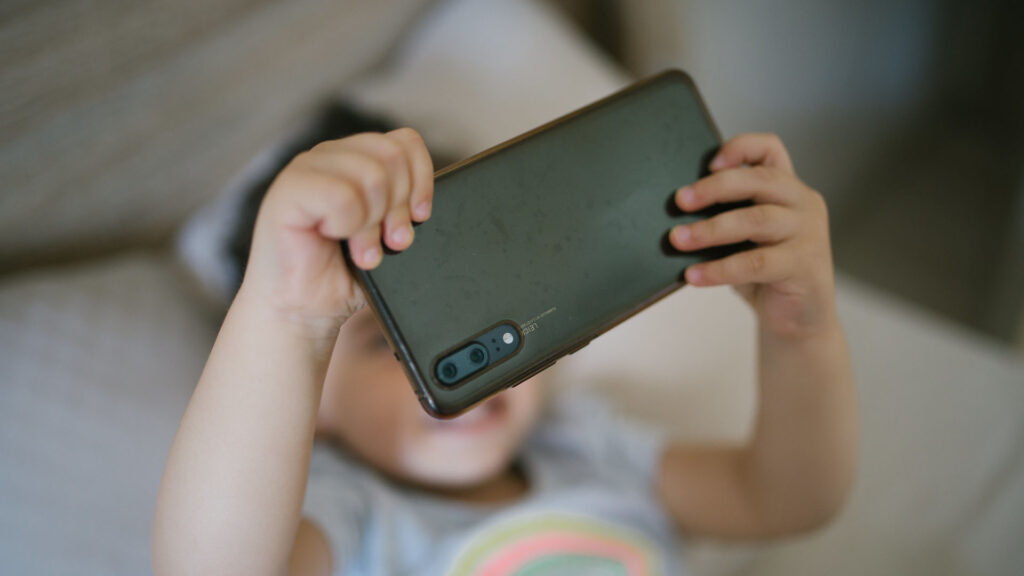
Officially, it’s a “break”. Instagram has suspended its work around its version for children aged 10 to 12. The social network lets it be known that it is not giving up its idea for all that. He will come back to the charge, with modifications, but seems to consider that it is basically only a problem of pedagogy.
A “break” in his program, not a final stop. This is how the management of the social network Instagram presented, Monday, September 27, the situation of its project for children. Called Instagram Kids, it was intended to allow minors under 13 to have an equivalent to the community site specializing in photo sharing, but compartmentalized and adapted to their age.
” We’re pausing Instagram Kids. It was a difficult decision. I still think building this experience is the right thing to do, but we want to take more time to talk with parents and experts working on how to do it right. “, said on Twitter Adam Mosseri, the boss of Instagram. His message is accompanied by a video which always pleads in favor of the project.
On paper, Instagram Kids was supposed to reach out to children between the ages of 10 and 12 and include parental controls to keep their activities under control. For example, the platform should make it possible to monitor the time spent on the site, the list of accounts they are allowed to follow or who they can talk to. Instagram Kids also had to not display any advertising.

In the United States, it is in principle prohibited to register on social networks under the age of 13. This is the consequence of a law, the COPPA (Children’s Online Privacy Protection Act), which since 1998 has prohibited the collection of data or the targeting of individuals who are under this age group. That said, a social network that fully complies with COPPA can reach out to these children.
The suspension of Instagram Kids comes after a long article in the Wall Street Journal was published in mid-September revealing internal and confidential documents from Facebook, the parent company of Instagram. It appears that the social network knows that it is harmful for some young people, especially young women. In addition, some teens see Instagram as a source of unease.
With these revelations in the press about what Facebook and Instagram really know about the unfavorable impact of their services on part of the youth, the project of an Instagram for children has become very difficult to defend. All the discourse of the social network on the need to better protect minors was telescoped by this investigation.
A problem of pedagogy?
In a more developed blog post, Adam Mosseri suggests that the conflict is more a problem of pedagogy about Instagram’s intentions, than a concern about the very nature of the project. Thus, the owner of the site explains that this break will be an opportunity to ” work with parents, experts and policy makers to demonstrate the value and need for this product. “
Among the arguments put forward by the platform, there is that of practices: children have smartphones earlier and earlier, access the Internet earlier and earlier and socialize online earlier and earlier. In theory, Instagram is banned for people under 13. But there is no real age control: it is enough to lie to fool the website. Except that children then register for the “adult” version.
This presence of minors on Instagram has led the platform to develop specific tools. For example, the site prohibits adults from writing privately to minors who do not follow them. It is also possible to hide the “likes” counter so that you no longer have to worry about the success of your publications. Ads have also been changed to avoid targeting.

Since the existence of the Instagram Kids project was revealed in the press in March, there has been a big outcry across the Atlantic. In April, a coalition of experts and organizations urged Facebook to let it go, pointing to the damage it could wreak on young people who are not yet ready for certain online interactions.
The coalition called on Mark Zuckerberg to translate his concerns for minors into action by abandoning this project. ” Instagram’s emphasis on photo sharing and idealized appearance makes the platform particularly unsuitable for children who are in the midst of crucial stages of developing a sense of self. She wrote.
The pressure was escalated in May, with the open letter signed by 44 US attorneys general, criticizing the social network for not responding to a need, but creating one. And to add that ” the use of social media can be detrimental to the health and well-being of children, who are not equipped to meet the challenges of having a social media account. “
All these criticisms had not deviated Facebook and Instagram from their trajectory, at least publicly. Several additional measures had, however, been unveiled over the past few months, such as the fact that Instagram accounts created by teenagers are now set to private viewing by default. The publication of the Wall Street Journal investigation seems to have been decisive.
It now remains to be seen when and how Instagram intends to relaunch its project. One can imagine at a more auspicious time, when the window opened by the American newspaper will be closed. Until then, the site promises announcements to come, without further details. It will also be an opportunity for the site to come back to its project and try to explain it better. As if it was just a misunderstanding.



